Legal Representation After a Motor Vehicle Accident in South Carolina
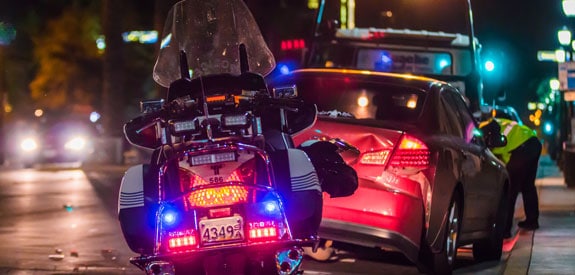
Dealing With a Serious Injury After a Car Accident?
If you’re searching for legal representation after a car wreck, you are definitely not alone. The aftermath of a serious car accident can leave you not just with damage done to your vehicle, but also potentially severe injuries and a series of questions that need to be answered.
At Bluestein Attorneys, our team is experienced at helping our clients to put the pieces of their life back together after serious collisions between vehicles. We’ve worked with clients injured after multiple-car collisions, wrecks involving tractor trailers, and motorcycle wrecks.
To request your free consultation, simply fill out this form.
Quick Jump
- Section 7
- How Do I Value My Car When Insurance Declares It Totaled?
- Section 8
- How Can a Lawyer Help?
- Back to Top
- Jump back to the top of this page
SECTION 1
Why are SC roads so deadly?
Here are some answers to frequently asked questions
While South Carolina’s overall traffic fatality rate has been trending slightly downwards, Lexington County and Richland County have unfortunately been seeing the opposite.
According to The State newspaper, by May 17, traffic deaths in Lexington County in 2018 were double what they were by the same time last year, with 34 deaths in total compared to last year’s 17. Richland County, meanwhile, was already battling a surge in traffic fatalities on Columbia roads and looks poised to continue the fight throughout 2018.
What’s causing this sudden spike in traffic fatalities? How can you keep yourself and your family safe on South Carolina’s roads? Let’s take a look.
1. Not Wearing a Seat Belt – Everyone learns the importance of wearing their seat belt from an early age, but too many adults get on the road without buckling up. South Carolina averages only about 50% seat belt use statewide, and it is often cited as a contributing factor in traffic fatalities. If a driver or passengers are not wearing seat belts, vehicle collisions are more likely to involve serious or fatal injuries. Be sure to buckle up every single time you’re in a vehicle, and take care to properly buckle up your children according to car seat and booster seat guidelines, too.
2. Driving Under the Influence – Driving under the influence of alcohol or drugs is consistently the number-one cited reason for traffic fatalities, and more than one-third of fatal car wrecks in Greenville and Anderson counties listed driving under the influence as the cause of the wreck. If you see someone driving erratically and you are concerned about your safety, report the problem to law enforcement immediately. Never get behind the wheel while under the influence of alcohol or drugs. Call for a cab, request an Uber or Lyft, or simply ask a friend to be your Designated Driver. Even some prescription drugs can cause impaired driving, so carefully read the labels and listed side effects of any and all prescription drugs you use.
3. Traveling at High Speeds – Speeding as a cause of traffic fatalities has been consistently on state reports from the very beginning, and it shows no signs of going away any time soon. When an individual drives above the speed limit, it takes them longer to slow down or come to a complete stop. A speeding driver may not be able to see individuals pulling in front of them at intersections, may run stop lights in an attempt to “beat the light”, or commit other unsafe behaviors that can easily lead to a collision between vehicles. Speed limits are listed for a reason. Try to keep close to the posted speed limits, and take care to stay aware and watchful while out on Columbia’s busy roads.
4. Distracted Driving and Texting and Driving – Texting and driving is illegal in South Carolina, but it’s not often cited as the reason for pulling someone over. If you’ve ever seen someone clearly staring down at their phone, applying makeup, or simply paying more attention to their coffee than the road, you’re not alone — distracted driving is one of the top causes of car wrecks in Lexington and Richland Counties. Most distracted drivers aren’t going to admit they were texting or looking at anything else when they speak with law enforcement following a crash, but it is possible for police officers to gain a search warrant that allows them to check for the last activities on an individual’s cell phone. The easiest way to avoid being involved in a wreck caused by texting and driving? Put your phone down. There is no text so important that it can’t wait until you get to your destination. Keep a careful eye out for other cars that may be operated by individuals who simply aren’t even looking up.
Quick Jump
- Section 7
- How Do I Value My Car When Insurance Declares It Totaled?
- Section 8
- How Can a Lawyer Help?
- Back to Top
- Jump back to the top of this page
SECTION 2
10 Do’s and Don’ts for Car Insurance Claims
In the case of sudden damage to your vehicle, whether it’s weather-related, a fallen tree branch, or a collision between two vehicles, you’ll first need to stay calm and assess the situation. You may be wondering just what to do after a car accident. Whether the damage is minor or more serious, you’ll want to know these do’s and don’ts before bringing a claim to your insurance company.
The Do’s
Call your agent right away.
Speak honestly with your agent.
Make a plan to look over your coverage before an accident occurs.
Take photos as soon as you can.
Read up on the difference between replacement coverage and depreciated or cash value.
SPEAK WITH AN ATTORNEY
The Don’ts
Don’t give a recorded or written statement to your insurer right away.
Don’t accept an estimate without a second opinion.
Don’t sign any releases or waivers until you’ve spoken to a legal representative.
Don’t accept any check labeled “final payment” unless you are truly ready.
Don’t ignore a time limit in your policy.
Quick Jump
- Section 7
- How Do I Value My Car When Insurance Declares It Totaled?
- Section 8
- How Can a Lawyer Help?
- Back to Top
- Jump back to the top of this page
SECTION 3
How Many Uninsured Drivers Are There in SC?
Approximately 7.7% of drivers on South Carolina roads are uninsured.
According to a recent study by the Insurance Research Council, approximately 7.7 % of drivers on South Carolina roads are uninsured. While that may not seem like a high percentage, keep in mind that means that on average one out of every thirteen cars on South Carolina roads has no car insurance.
Other states have even higher numbers, with Oklahoma having a more than 1 in 4 chance of a driver being uninsured. Any multi-state trip puts you at about a 1 in 7 chance of encountering a totally uninsured motorist while driving, and while the odds of getting involved in a collision with one of these drivers is fairly low, the overall numbers still add up to nearly 800,000 minor or major wrecks involving uninsured drivers each year.
Quick Jump
- Section 7
- How Do I Value My Car When Insurance Declares It Totaled?
- Section 8
- How Can a Lawyer Help?
- Back to Top
- Jump back to the top of this page
SECTION 4
Who Covers My Medical Bills After a Car Wreck?
Bodily Injury Liability is insurance coverage for the at-fault driver designed to cover injuries
Dealing with the required repairs to your car (or even buying a new one, if insurance totals out your vehicle due to extensive damage) can be seriously stressful.
Add having to locate cash for deductible and out-of-pocket medical expenses, and it’s no wonder you’re worried about how to make ends meet.
This is where Bodily Injury Liability coverage comes into play. Bodily Injury Liability is insurance coverage for the at-fault driver designed to cover injuries caused to other individuals in a vehicular collision. This coverage extends to all drivers and passengers within a vehicle, and also pedestrians that might be injured by the at-fault insured.
South Carolina requires all cars be insured with a minimum of up to $25,000 in coverage for bodily injury or death per person, and $50,000 in for bodily injury or death per accident, but many policies cover higher amounts, so be sure to check your policy details.
Bodily Injury Liability covers medical costs, rehabilitation costs, hospital bills, payouts for pain and suffering, and helps with potential lost wages from being out of work for more serious injuries. It doesn’t cover damage to vehicles or property — that’s a different type of insurance usually included in auto insurance policies.
If you are involved in a car wreck in which you are not at fault, the other party’s bodily injury liability coverage should pay for your medical treatment costs. If you are the at-fault party, your Bodily Injury Liability coverage will cover the medical bills of the other people involved.
While it’s certainly possible that the other party’s insurance would begin to process medical costs right away, it’s not likely. Investigations into car wrecks that cause injuries tend to be somewhat lengthy, and it could take weeks, months, or even years in cases involving serious injuries for everything to be settled.
The claims agent working on behalf of the at-fault party’s insurance company may offer you a small settlement upfront. These early offers rarely amount to enough to cover costs and once the offer is accepted and a release is signed there will be no additional opportunities to recover more money.
Let the claims agent know that you need to have a better understanding of what your treatment costs will add up to before you can accept a specific settlement amount, and ask what steps you need to take to prove the cost of your care to ensure all costs are covered.

Do not wait to seek medical care.
Many injuries become harder to treat if care is delayed, so seek care immediately. Keep any and all documentation required of care you receive as a result of the car wreck, including:
- X-rays
- Hospital stays, if any
- Ambulance ride costs
- Emergency room visits
- Prescription medications
- Over-the-counter medicines (keep receipts)
- Physical therapy and other follow-up care
- Bills received related to the car wreck
- Statements from your health insurance company
- Any costs of transportation to and from medical appointments
If you receive documents at the doctor’s office, ask them to provide you with an extra copy. If bills and other documents arrive through the mail, make copies as soon as possible.
Be sure that you always have the original copies of all medical bills safely stored in case of future needs, including statements from your health insurance company.
Some health insurance companies may require compensation for costs they paid out for your medical treatment, so it is essential to keep all documents of any kind relating to the car wreck and resulting injuries.
You’ll likely have to cover deductible and out-of-pocket costs on your own and get reimbursed through the settlement. If these upfront expenses are difficult, inform your medical provider of your situation.
Some physicians and medical offices are willing to work with patients who are dealing with this complex and sometimes confusing process, and may be able to place a “hold” on your out-of-pocket expenses, to be paid when your settlement comes in.
If nothing else, you may be able to ensure that even higher treatment costs don’t go into collections while you wait for a settlement to be finalized.
Quick Jump
- Section 7
- How Do I Value My Car When Insurance Declares It Totaled?
- Section 8
- How Can a Lawyer Help?
- Back to Top
- Jump back to the top of this page
SECTION 5
What Do I Do When I’m the Victim of a Hit-and-Run Accident?
The state of South Carolina allows the victim of a hit-and-run to sue the “John Doe” or “Jane Doe” who was at fault, even if they don’t immediately know who hit them or know which insurance company to contact.
This is covered under “uninsured driver” insurance. There are three requirements in order to make a claim against “John/Jane Doe” in these cases. These requirements are straightforward and are designed to ensure that hit-and-run accidents aren’t staged or reported to commit insurance fraud.
A police report dated within a reasonable amount of time after the wreck ensures an officer was able to corroborate the details of the wreck as well as the personal injury or property damage involved. A testimonial from an unrelated witness and physical evidence helps build your case. The third requirement essentially ensures that drivers will exchange insurance information if at all possible instead of letting time lapse and thus being unable to identify the person at fault.
One
Two
Three
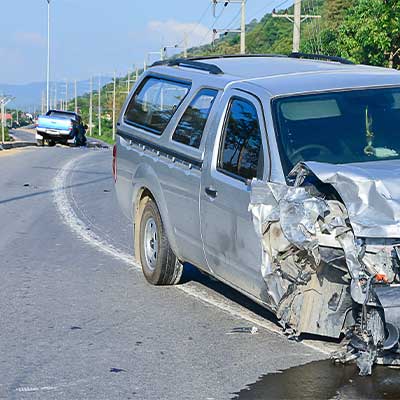
How much Uninsured Motorist Insurance should I have?
South Carolina law requires the plaintiff to have the right to recover in these cases if there is someone to recover against. If you can’t identify the person who hit you, or if the person responsible for the collision does not have liability insurance, the entity you are recovering compensation from becomes your insurance company, via your uninsured motorist policy coverage.
You are legally required to purchase uninsured-driver insurance for a minimum of $25,000 in coverage of bodily injury per person and $50,000 in bodily injury per accident, we do recommend you get as much coverage as you can afford to protect you in the event of a hit-and-run collision. You can purchase additional uninsured motorist coverage up to the amount of liability coverage that you purchase.
Although uninsured motorist coverage beyond the $25,000/$50,000 statutory minimum is available, many drivers opt not to pay for it, believing the risk of being the victim of a hit-and-run is not high enough to warrant the extra cost on their policy. In the case of a “John Doe” accident, this leaves you unable to file for compensation beyond whatever your basic insurance coverage allows.
Quick Jump
- Section 7
- How Do I Value My Car When Insurance Declares It Totaled?
- Section 8
- How Can a Lawyer Help?
- Back to Top
- Jump back to the top of this page
SECTION 6
What Should I Do If I Witness a Car Accident
Step One:
Stay calm. Do not panic.
Vehicle collisions can be nerve-wracking even when there are no injuries. If you witness a vehicle collision or even a single-car crash, please try to remain calm.
Pull your car over, safely out of the road, and turn on your flashing hazard lights. If you have traffic flags or flares in your vehicle, get them out to help make sure upcoming traffic is aware of a potential obstruction in the road.
Check to make sure there is plenty of room for first responders to park and assess the situation as best you can. Did the vehicles suffer serious damage? If so, what parts of the car? Does it look like any of the drivers or occupants of the vehicles may be seriously injured? Is it safe for you to provide direct assistance, or do you risk injury yourself?
Call 911 and let the dispatcher know about the car wreck, especially if you believe serious injuries were involved.
Let them know if you smell gasoline or see flames, as this is essential information for first responders. They will alert the police, as well as sending first responders like fire trucks and ambulances if needed. Avoid broken glass and watch for any cars that may be swerving dangerously in an attempt to avoid the wreck.
If you witness a hit-and-run car wreck (in which a vehicle hits a pedestrian or another car and then speeds away), do not attempt to chase the fleeing driver.
Instead, see if you can capture their license plate number, the make, model, and color of the vehicle, or even a physical description of the person behind the wheel. Let first responders and police officers know any and all information about the hit-and-run, especially if you were able to get any information to help locate the fleeing driver.
Step Two:
Don’t assume someone else called the cops.
People have an unfortunate tendency to assume that someone else has probably already alerted 911 when they come up on a collision.
Remember — the collision itself will be incredibly jarring for the individuals involved, especially if they are injured, and they may not have the ability to call for help right away.
It’s better to be cautious and call 911 yourself. Even if someone else has already called, you may be able to provide further information or more details that the police officers or EMTs find helpful.
Step Three:
Provide cautious, safe assistance.
In some cases, it will not be safe for you to approach the vehicle to offer direct assistance, or the individuals in the vehicles may be too severely injured to be safely removed from the car.
If the accident was not severe and the individuals involved are able to get out of the vehicle, offer to sit with them. Ask if they need a blanket if you have one on-hand, or a sweater.
If they give consent, you may be able to record them describing the events of the wreck with your mobile phone, or phone their loved ones or family members on their behalf to let them know what happened.
Car wrecks can often turn into a muddle of quick events and worry, so it can be a deep comfort for those who have been injured in a wreck to know their family members are aware and on their way to provide assistance or meet them at the hospital.
Step Four:
Give a statement to the police.
If you witnessed a car wreck in progress, or even if you simply came upon it shortly after it occurred, the police may ask you to provide a statement.
Try to give calm, clear details about the events as you witnessed them, and avoid speculating and talking about what might have happened if you’re not sure. The police will probably ask you to give your name, phone number, and address, and may contact you again for further details or clarification later on or even to act as a legal witness.
Don’t be afraid to say, “I don’t know” or “I don’t remember”.
The police are more interested in using accurate details to build a clear picture of how events transpired, and it’s okay if you can’t remember certain things or you didn’t see them.
Step Five:
Write it all down as soon as possible.
When you have a moment, take time to write down your recollection of the vehicle collision. In the hours and days after an event like a car wreck, it’s not uncommon for witnesses to realize they are already forgetting details of the event.
Be sure to make note of any specific details, exact times, or anything at all you can recall.
You may find that further details come back to you once you’re out of the actual scene of the collision, or you may find it helps you to not forget these important details as time goes by.
If you do remember any information that you did not previously provide to the police, contact the police department and let them know you have new details to add to your statement.
Quick Jump
- Section 7
- How Do I Value My Car When Insurance Declares It Totaled?
- Section 8
- How Can a Lawyer Help?
- Back to Top
- Jump back to the top of this page
SECTION 7
How Do I Value My Car When Insurance Declares It Totaled?
We have a few steps to take when proving your car’s value to your insurance company after a total loss.
First, Visit Kelley Blue Book.
Kelley Blue Book has long been the standard tool for valuing a vehicle, so it’s a great place to get started, even before you’ve received a settlement offer from your claims agent. In order to find out a realistic value for your vehicle, you’ll need:
- Year, make, and model
- Your zip code
- Options (Hybrid, 4WD, etc)
- Color
- Condition (Fair, Good, etc)
Be sure to be totally honest about every question, to ensure your value is accurate. Using this information, Kelley will populate a Blue Book Value for your vehicle, showing a reasonable Trade-In Offer or Cash Value. Write this number down. If your insurance offers you a settlement that matches the car’s value, great! If, however, there is a significant discrepancy, you’ll want to have this information on hand to help you during the next step.
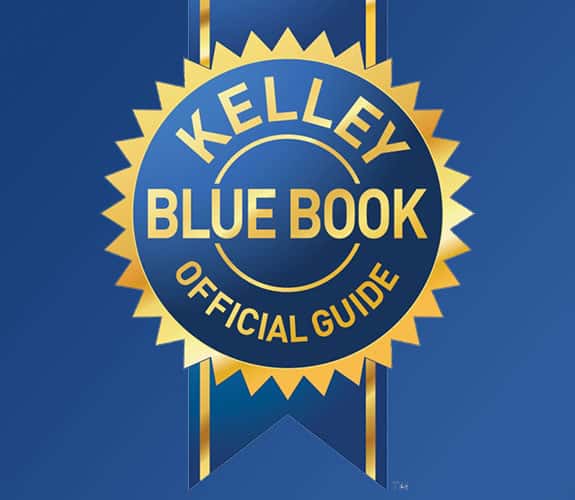

Ask What They Require for Proof
Our first advice is not to react with hostility to the settlement offer, even if it is far lower than your expectations. The claims agent on the other end of the phone is, after all, simply working in accordance with their job responsibilities and will be more likely to work with you if you are calm, pleasant, and polite.
Thank them for letting you know their idea of the valuation of the vehicle, but that you disagree based on the information you gathered from Kelley Blue Book. Sometimes, this information will be all the claims agent needs to know. If they cannot accept the Kelley Blue Book value, they may ask for further proof.
Ask what documentation, and how much, they require to accept the higher value for the vehicle in order to pay your claim. Your insurance company may ask you to provide “comps” — that is, examples of vehicles for sale or lease at your suggested value that are an identical year, make, model, condition, and sometimes color. If your claims agent asks for this information, ask them two questions:
- How many comparative examples do they require? Is it five, ten, fifteen?
- What is the range of distance they’ll accept for comps? This might be within 75 miles, within the state, or some other distance measurement.
If at all possible, ask the claims agent to send these requirements to you in writing via a letter, email, or fax. We cannot emphasize enough how important it is to maintain documentation of every single term agreed upon between the two parties. Even if they will not email you, write down everything they say so you can reference it later, along with the date and time of the communication.
Put Together Your Proof of Value
If the car dealership you bought the vehicle from is able to provide paper documentation of the value that matches your expectation, provide that to your claims agent.
You’ll also want to search for cars like yours within the distance area provided by the insurance agent. Try to find enough comps to match. Don’t give up if some comps are rejected. Keep searching!
Your claims agent may agree to your amount once you have provided the amount of documentation proving value that they asked for. If not…

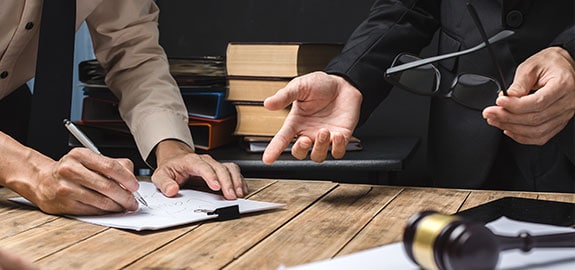
Consider Seeking Legal Representation
We understand the hesitation many have when it comes to pursuing litigation against their insurance company — many individuals expect retaliatory behavior in return or worry that the company will drag out the time and cost. In many cases, issues like this can be settled through mediation between parties or with a settlement long before any time in the courtroom is required.
Put together your documentation of everything you’ve done so far, and all communications with your claims agent, and bring it to your consultation.
Quick Jump
- Section 7
- How Do I Value My Car When Insurance Declares It Totaled?
- Section 8
- How Can a Lawyer Help?
- Back to Top
- Jump back to the top of this page
SECTION 8
How Can a lawyer help after a car wreck?
We know the right questions to ask.
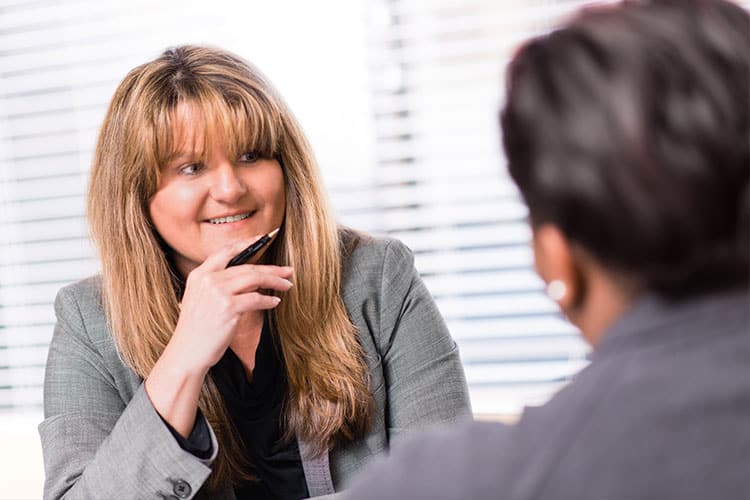
The aftermath of a car wreck can be difficult to navigate on many different levels. Injured people are often asked to advocate for themselves entirely, without much help from auto insurance companies who are often more interested in streamlining expenses than in the experiences of the individuals involved in the wreck.
We recommend that you schedule a free consultation with legal representation, especially with someone who has experience dealing with automobile accidents and Personal Injury matters. At Bluestein Attorneys, we have experience working with individuals involved in collisions between vehicles. Whether you’ve been the victim of a hit and run, involved in a wreck with a tractor trailer, or your insurance company isn’t offering you the full value of your car after declaring it totaled, we would be happy to sit down with you to discuss your unique situation and help you decide on the best next step for you.
To request your FREE Automobile Accidents consultation today, give us a call at (803) 779-7599 or contact us online at any time.